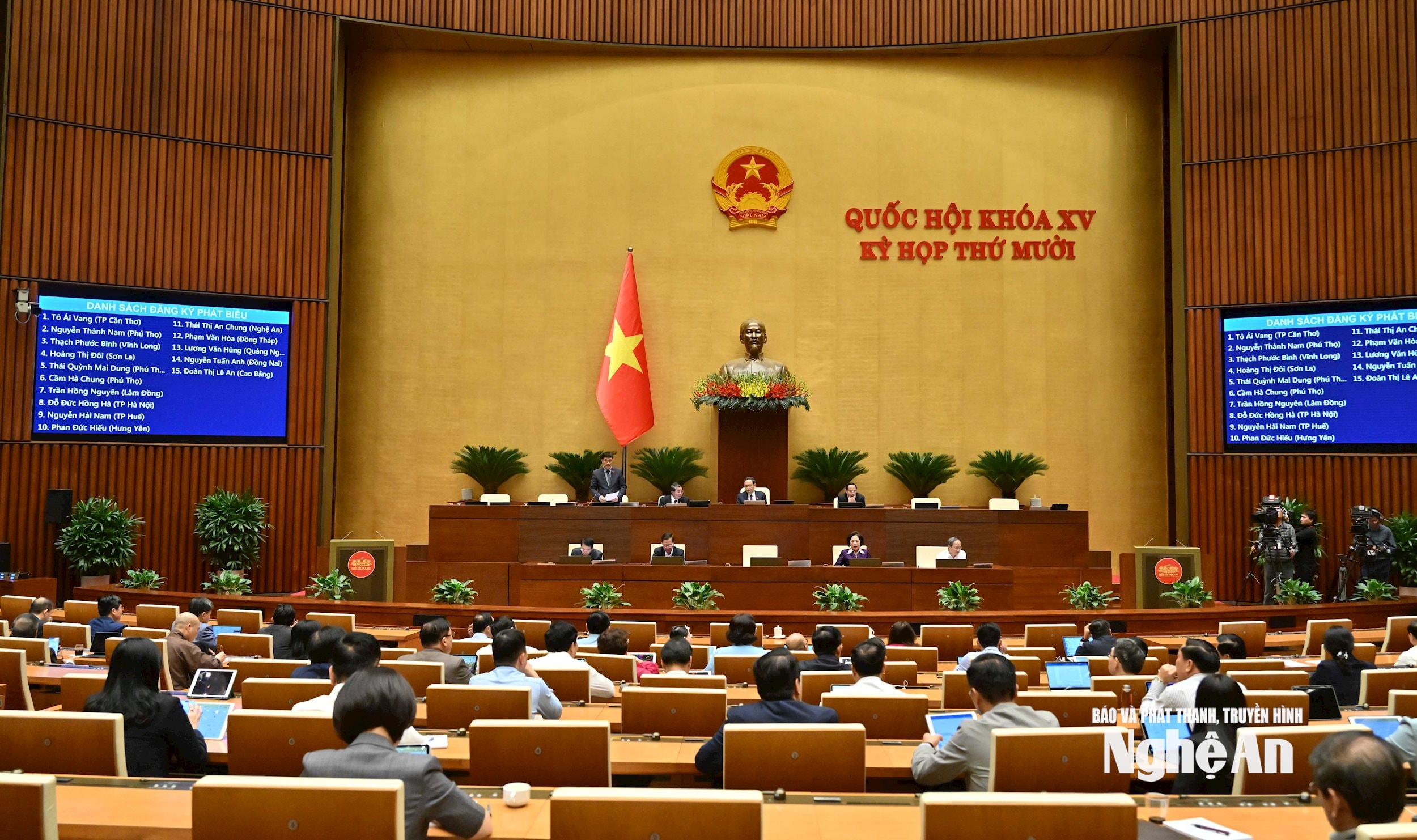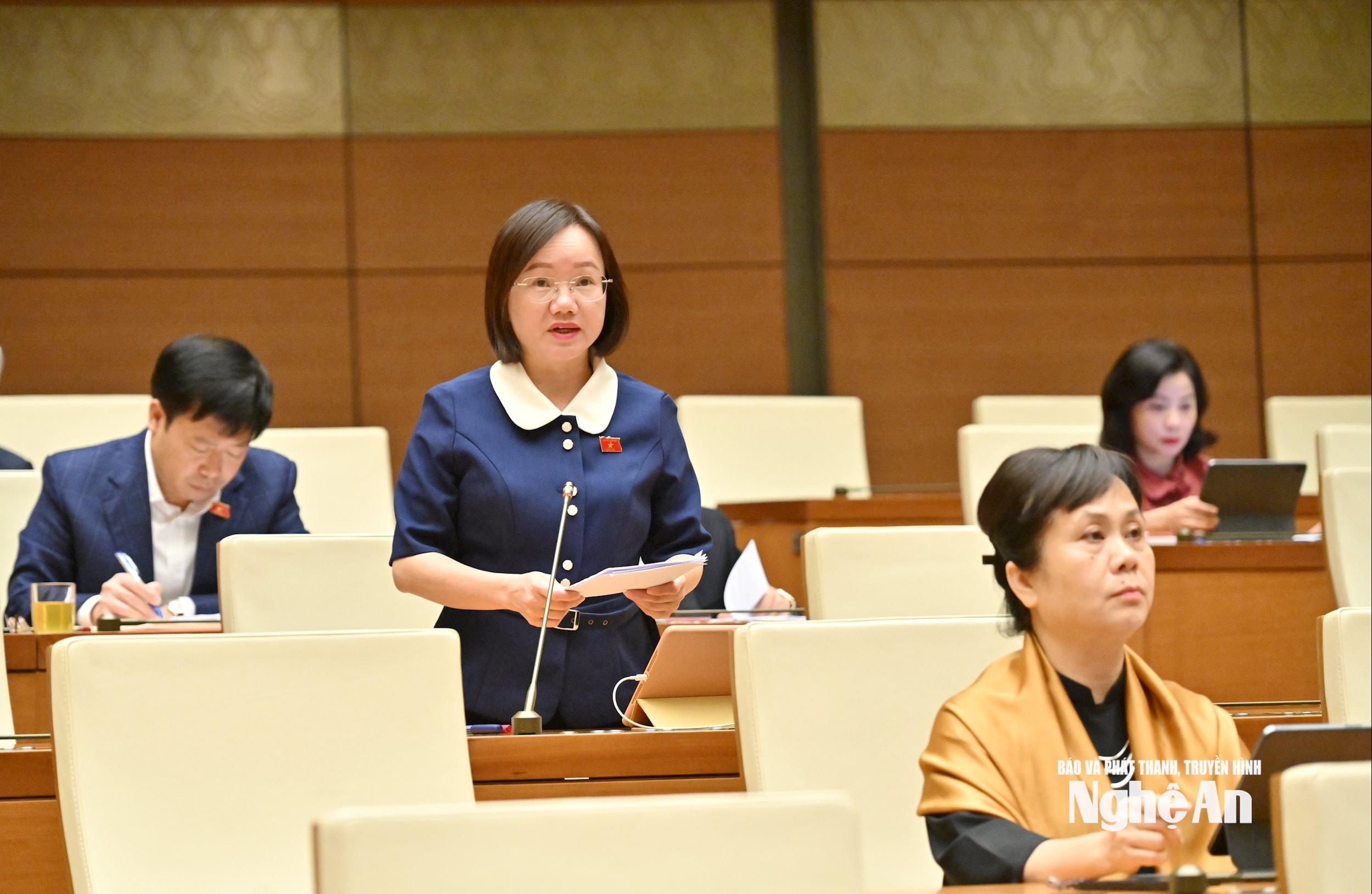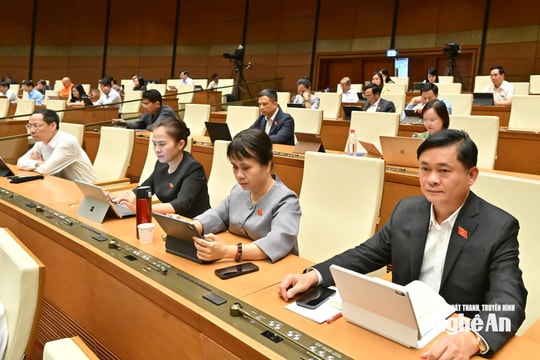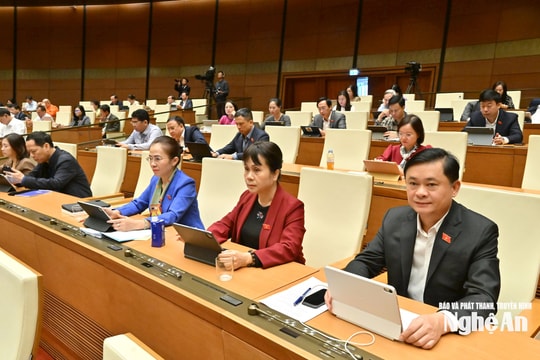National Assembly delegates from Nghe An province pointed out the problem of credit fund deposit insurance fees being equal to commercial banks.
On the afternoon of November 14, the National Assembly discussed in the hall the draft Law on Deposit Insurance (amended).

Ms. Thai Thi An Chung - Member of the Provincial Party Executive Committee, Deputy Head of the National Assembly Delegation of Nghe An province gave her opinion regarding the regulation on decentralization of authority to decide on deposit insurance premiums.
According to the draft Law, the Governor of the State Bank (SBV) is authorized to prescribe the fee level and apply the deposit insurance fee at the same level or differentiate it in accordance with the characteristics of the Vietnamese credit institution system in each period.
She said that this is a direction in line with the policy of increasing decentralization, and at the same time, in line with the functions of the State Bank - the agency responsible for inspecting and supervising the credit institution system and managing deposit insurance activities.
.jpg)
The delegate from Nghe An analyzed that both the flat fee and differential fee models have their own advantages and disadvantages. The differential fee has the advantage of encouraging credit institutions to improve their management capacity to be ranked well and pay lower fees. However, this method of calculation causes weak credit institutions to pay higher fees, making them more financially difficult.
She cited the 2024 survey by the International Association of Deposit Insurers: Of the 110 institutions that responded, 46% applied flat fees, 47% applied differential fees, and 7% applied a combination of both. This almost equal distribution, she said, shows that each country chooses a flexible option depending on the structure of its banking system. Therefore, it is reasonable to give the Governor of the State Bank the right to decide on the fee model in each period.
However, in case the State Bank decides to apply differential fees according to risk levels, the delegate of Nghe An delegation suggested that it is necessary to add to the draft Law regulations on information security on deposit insurance ratings and fees.
“Information on deposit ratings and insurance premiums, if not kept confidential, could lead to unfair competition; there is a risk that depositors will withdraw money from low-rated credit institutions to transfer to higher-rated credit institutions,” said delegate Thai Thi An Chung, a sensitive risk that the Law needs data on.

The deposit insurance premium is applied to People's Credit Funds (PCFs). The country currently has more than 1,100 funds, Nghe An alone has 51 funds. PCFs operate under the cooperative model, prioritizing mutual support for members, serving production and life, the main subjects are farmers and households.
The delegate said that according to the reflection of some QTDNDs in the area, currently QTDNDs have to pay deposit insurance fees of 0.15%/year/total insured deposit balance like commercial banks, and have to pay fees to the QTDND System Safety Guarantee Fund currently at 0.05%/year on total outstanding loans.
“Most of the current QTDNDs are small in scale and have limited financial capacity, while their main operating goals are mutual support, serving members, farmers and rural development,” she said, adding that the deposit insurance premium, although small for commercial banks, has become a significant burden and reduces the competitiveness of QTDNDs.
Therefore, delegate Thai Thi An Chung proposed to add a fee calculation principle in the direction that the insurance fee for QTDND must be lower than that of other credit institutions. At the same time, when applying uniform or differentiated fees, the State Bank needs to calculate an appropriate level to avoid putting pressure on this social and community capital system.
Regarding the deposit insurance payment limit, this is a concept that refers to the maximum amount that the deposit insurance organization pays to the depositor when the insurance payment obligation arises and is regulated during the period.
The delegate from Nghe An said that the current deposit insurance payment limit of 125 million VND is quite low and cannot protect all depositors.
Therefore, she expressed her agreement with the draft Law's provision allowing "in special cases, the Governor of the State Bank of Vietnam to decide on the payment limit exceeding the limit"; at the same time, she commented that this is a flexible, backup mechanism to respond to crisis situations that pose a risk of causing serious instability to the banking system or social security.
However, delegate Thai Thi An Chung said that the concept of "special cases" mentioned in the above regulation is too general; therefore, it is recommended to specify the quantitative and qualitative criteria to determine special situations.
"In particular, it is necessary to pay attention to criteria such as the impact on the banking system, and at the same time, pay attention to criteria such as social impact, contagion risks, urgent needs... if the credit institution fails to decide to pay beyond the limit," said the delegate of Nghe An delegation.





